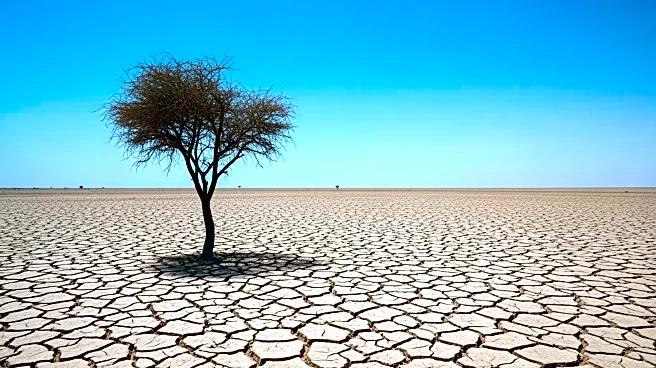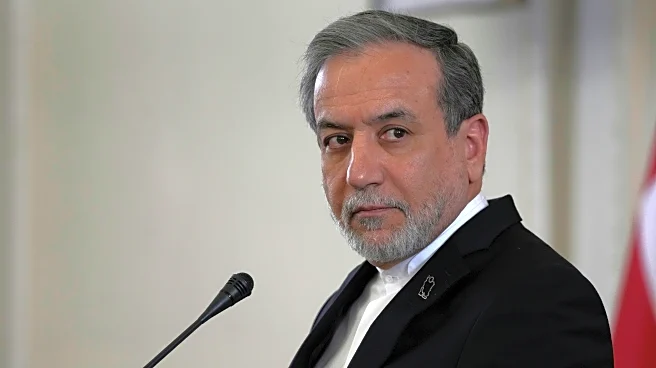What's Happening?
The United Nations has issued a dire warning regarding the escalating famine crisis in Sudan, where nearly 25 million people are facing severe food shortages due to ongoing conflict. The situation is particularly
critical in the Darfur region, where Sudanese paramilitary groups have seized key army garrisons, exacerbating the humanitarian crisis. In El Fasher, residents are under siege, and the war has severely impacted agriculture, leading to food rotting in fertile areas like Jebel Marra. The conflict has isolated regions, making transportation of food to markets nearly impossible, further worsening the food scarcity.
Why It's Important?
The famine crisis in Sudan has significant implications for the region's stability and the well-being of millions of people. The disruption of agriculture and food supply chains threatens to deepen the humanitarian crisis, potentially leading to increased displacement and suffering. The inability to transport food from fertile regions to markets highlights the severe impact of the conflict on the country's infrastructure and economy. This situation could lead to further international intervention and aid efforts, as well as increased pressure on Sudanese authorities to resolve the conflict and address the humanitarian needs of the population.
What's Next?
The ongoing conflict and famine crisis in Sudan may prompt international organizations and governments to increase humanitarian aid and diplomatic efforts to resolve the conflict. The Sudanese government and paramilitary groups may face mounting pressure to negotiate peace and allow for the safe passage of food and aid to affected regions. Additionally, the international community may need to address the root causes of the conflict to prevent further deterioration of the humanitarian situation.
Beyond the Headlines
The crisis in Sudan highlights broader issues of governance, ethnic tensions, and resource allocation that have plagued the region for decades. The isolation of regions like Jebel Marra underscores the challenges of providing aid in conflict zones and the need for sustainable solutions to address food security and infrastructure development. The situation also raises ethical questions about the responsibility of international actors in conflict resolution and humanitarian assistance.










